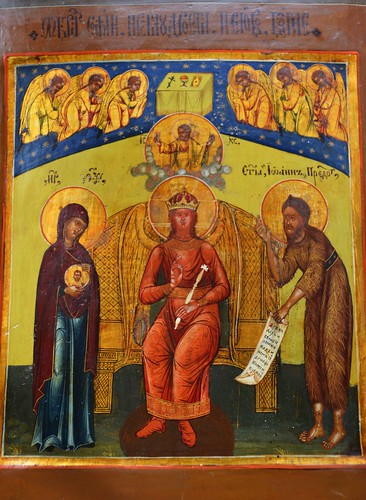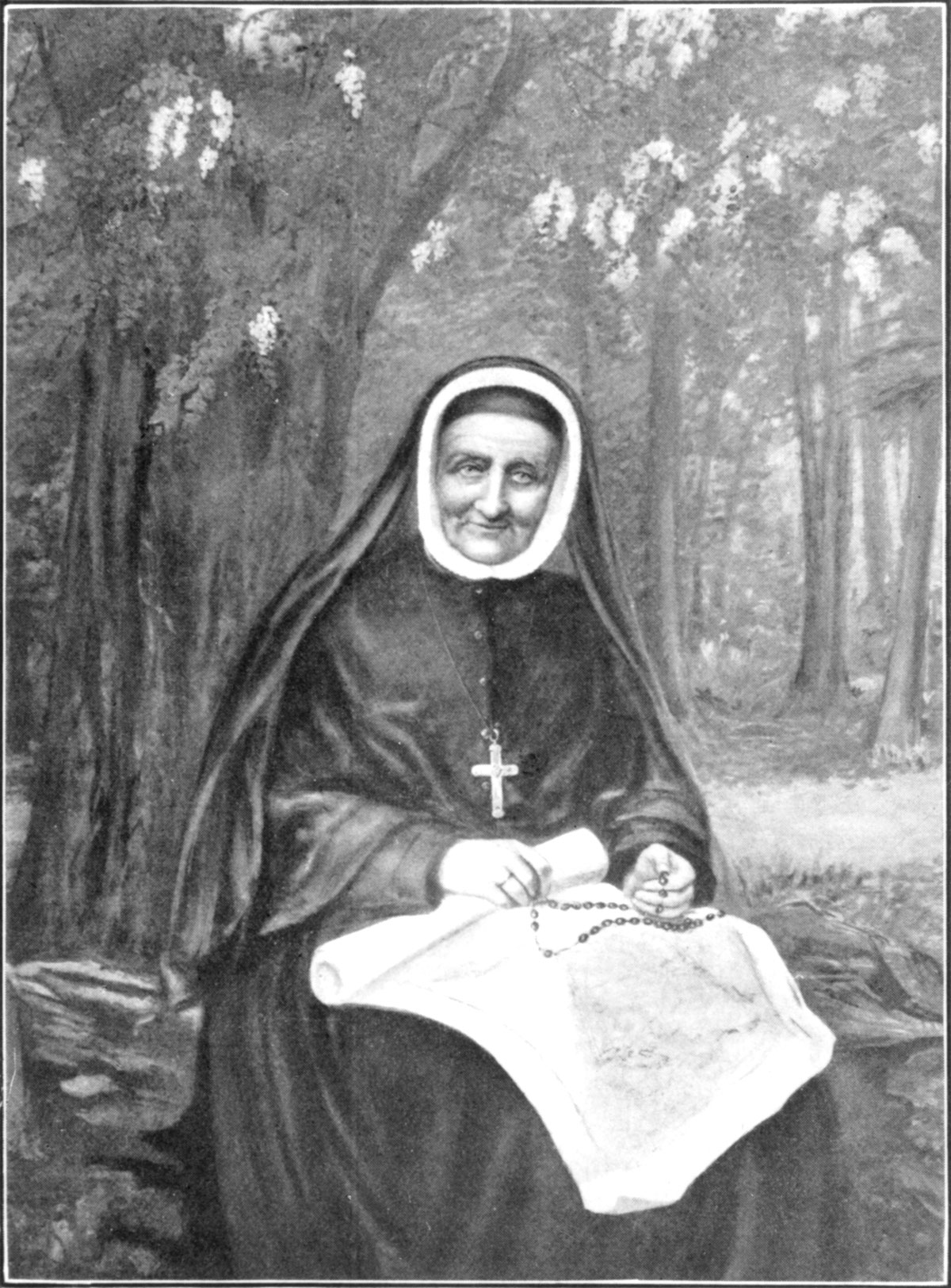
Catena Aurea by St. Thomas Aguinas
18:1–8
1. And he spake a parable unto them to this end, that men ought always to pray, and not to faint;
2. Saying, There was in a city a judge, which feared not God, neither regarded man:
3. And there was a widow in that city; and she came unto him, saying, Avenge me of mine adversary.
4. And he would not for a while: but afterwards he said within himself, Though I fear not God, nor regard man;
5. Yet because this widow troubleth me, I will avenge her, lest by her continual coming she weary me.
6. And the Lord said, Hear what the unjust judge saith.
7. And shall not God avenge his own elect, which cry day and night unto him, though he bear long with them?
8. I tell you that he will avenge them speedily. Nevertheless when the Son of man cometh, shall he find faith on the earth?
THEOPHYLACT. Our Lord having spoken of the trials and dangers which were coming, adds immediately afterward their remedy, namely, constant and earnest prayer.
CHRYSOSTOM. He who hath redeemed thee, hath shewn thee what He would have thee do. He would have thee be instant in prayer, He would have thee ponder in thy heart the blessings thou art praying for, He would have thee ask and receive what His goodness is longing to impart. He never refuses His blessings to them that pray, but rather stirs men up by His mercy not to faint in praying. Gladly accept the Lord’s encouragement: be willing to do what He commands, not to do what He forbids. Lastly, consider what a blessed privilege is granted thee, to talk with God in thy prayers, and make known to Him all thy wants, while He though not in words, yet by His mercy, answers thee, for He despiseth not petitions, He tires not but when thou art silent.
BEDE. We should say that he is always praying, and faints not, who never fails to pray at the canonical hours. Or all things which the righteous man does and says towards God, are to be counted as praying.
AUGUSTINE. (lib. ii. qu. 45.) Our Lord utters His parables, either for the sake of the comparison, as in the instance of the creditor, who when forgiving his two debtors all that they owed him was most loved by him who owed him most; or on account of the contrast, from which he draws his conclusion; as, for example, if God so clothe the grass of the field, which to-day is, and tomorrow is cast into the oven, shall he not much more clothe you, O ye of little faith. So also here when he brings forward the case of the unjust judge.
THEOPHYLACT. We may observe, that irreverence towards man is a token of a greater degree of wickedness. For as many as fear not God, yet are restrained by their shame before men, are so far the less sinful; but when a man becomes reckless also of other men, the burden of his sins is greatly increased.
It follows, And there was a widow in that city.
AUGUSTINE. The widow may be said to resemble the Church, which appears desolate until the Lord shall come, who now secretly watches over her. But in the following words, And she came unto him, saying, Avenge me, &c. we are told the reason why the elect of God pray that they may be avenged; which we find also said of the martyrs in the Revelations of St. John, (Rev. 6:10.) though at the same time we are very plainly reminded to pray for our enemies and persecutors. This avenging of the righteous then we must understand to be, that the wicked may perish. And they perish in two ways, either by conversion to righteousness, or by punishment having lost the opportunity of conversion. Although, if all men were converted to God, there would still remain the devil to be condemned at the end of the world. And since the righteous are longing for this end to come, they are not unreasonably said to desire vengeance.
CYRIL OF ALEXANDRIA. Or else; Whenever men inflict injury upon us, we must then think it a noble thing to be forgetful of the evil; but when they offend against the glory of God by taking up arms against the ministers of God’s ordinance, we then approach God imploring His help, and loudly rebuking them who impugn His glory.
AUGUSTINE. (ut sup.) If then with the most unjust judge, the perseverance of the suppliant at length prevailed even to the fulfilment of her desire, how much more confident ought they to feel who cease not to pray to God, the Fountain of justice and mercy? And so it follows. And the Lord said, Hear what, &c.
THEOPHYLACT. As if He said, If perseverance could melt a judge defiled with every sin, how much more shall our prayers incline to mercy God the Father of all mercies! But some have given a more subtle meaning to the parable, saying, that the widow is a soul that has put off the old man, (that is, the devil,) who is her adversary, because she approaches God, the righteous Judge, who neither fears (because He is God alone) nor regards man, for with God there is no respect of persons. Upon the widow then, or soul ever supplicating Him against the devil, God shews mercy, and is softened by her importunity. After having taught us that we must in the last days resort to prayer because of the dangers that are coming, our Lord adds, Nevertheless, when the Son of man cometh, shall he find faith on the earth?
AUGUSTINE. (Serm. 115.) Our Lord speaks this of perfect faith, which is seldom found on earth. See how full the Church of God is; were there no faith, who would enter it? Were there perfect faith, who would not move mountains?
BEDE. When the Almighty Creator shall appear in the form of the Son of man, so scarce will the elect be, that not so much the cries of the faithful as the torpor of the others will hasten the world’s fall. Our Lord speaks then as it were doubtfully, not that He really is in doubt, but to reprove us; just as we sometimes, in a matter of certainty, might use the words of doubt, as, for instance, in chiding a servant, “Remember, am I not thy master?”
AUGUSTINE. (ut sup.) Our Lord adds this to shew, that when faith fails, prayer dies. In order to pray then, we must have faith, and that our faith fail not, we must pray. Faith pours forth prayer, and the pouring forth of the heart in prayer gives stedfastness to faith.
Catena Aurea Luke 18
Saint of the Day for November 20
(August 29, 1769 – November 18, 1852)
Saint Rose Philippine Duchesne’s Story
Born in Grenoble, France, of a family that was among the new rich, Rose learned political skills from her father and a love of the poor from her mother. The dominant feature of her temperament was a strong and dauntless will, which became the material—and the battlefield—of her holiness. She entered the Visitation of Mary convent at 19, and remained despite family opposition. As the French Revolution broke, the convent was closed, and she began taking care of the poor and sick, opened a school for homeless children, and risked her life helping priests in the underground.
When the situation cooled, Rose personally rented the former convent, now a shambles, and tried to revive its religious life. The spirit was gone, however, and soon there were only four nuns left. They joined the infant Society of the Sacred Heart, whose young superior, Mother Madeleine Sophie Barat, would be her lifelong friend.
In a short time Rose was a superior and supervisor of the novitiate and a school. But since hearing tales of missionary work in Louisiana as a little girl, her ambition was to go to America and work among the Indians. At 49, she thought this would be her work. With four nuns, she spent 11 weeks at sea en route to New Orleans, and seven weeks more on the Mississippi to St. Louis. She then met one of the many disappointments of her life. The bishop had no place for them to live and work among Native Americans. Instead, he sent her to what she sadly called “the remotest village in the U.S.,” St. Charles, Missouri. With characteristic drive and courage, she founded the first free school for girls west of the Mississippi.
Though Rose was as hardy as any of the pioneer women in the wagons rolling west, cold and hunger drove them out—to Florissant, Missouri, where she founded the first Catholic Indian school, adding others in the territory.
“In her first decade in America, Mother Duchesne suffered practically every hardship the frontier had to offer, except the threat of Indian massacre—poor lodging, shortages of food, drinking water, fuel and money, forest fires and blazing chimneys, the vagaries of the Missouri climate, cramped living quarters and the privation of all privacy, and the crude manners of children reared in rough surroundings and with only the slightest training in courtesy” (Louise Callan, R.S.C.J., Philippine Duchesne).
Finally at age 72, retired and in poor health, Rose got her lifelong wish. A mission was founded at Sugar Creek, Kansas, among the Potawatomi and she was taken along. Though she could not learn their language, they soon named her “Woman-Who-Prays-Always.” While others taught, she prayed. Legend has it that Native American children sneaked behind her as she knelt and sprinkled bits of paper on her habit, and came back hours later to find them undisturbed. Rose Duchesne died in 1852, at the age of 83, and was canonized in 1988. Her liturgical feast is celebrated on November 18.
Reflection
Divine grace channeled Mother Duchesne’s iron will and determination into humility and selflessness, and to a desire not to be made superior. Still, even saints can get involved in silly situations. In an argument with her over a minor change in the sanctuary, a priest threatened to remove the tabernacle. She patiently let herself be criticized by younger nuns for not being progressive enough. For 31 years, she hewed to the line of a dauntless love and an unshakable observance of her religious vows.
franciscanmedia.org





